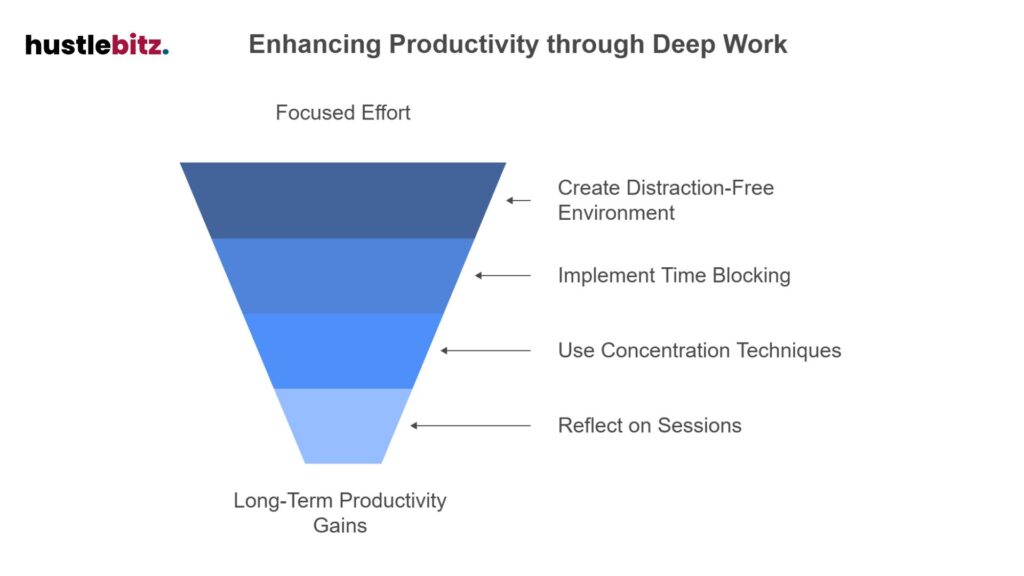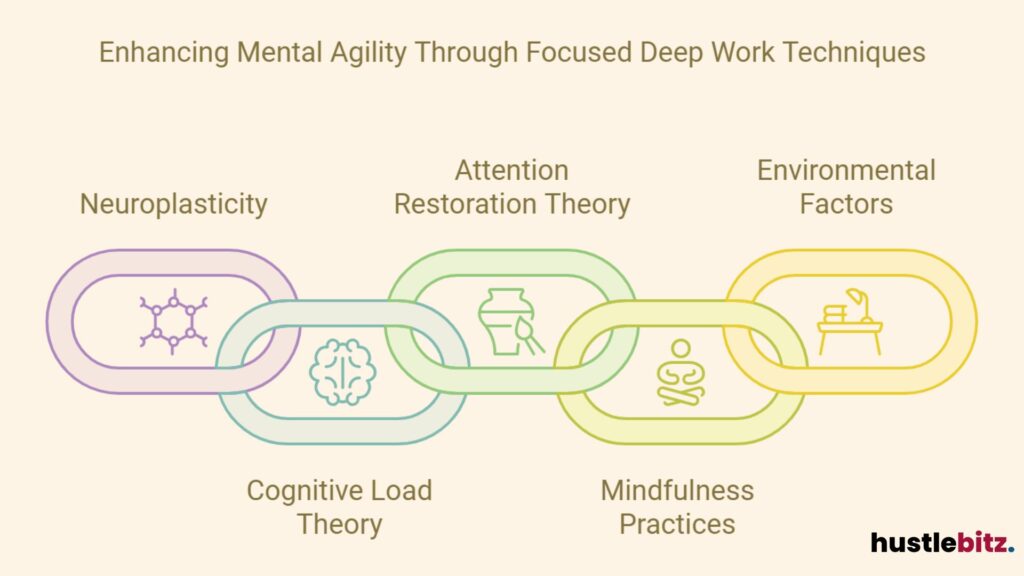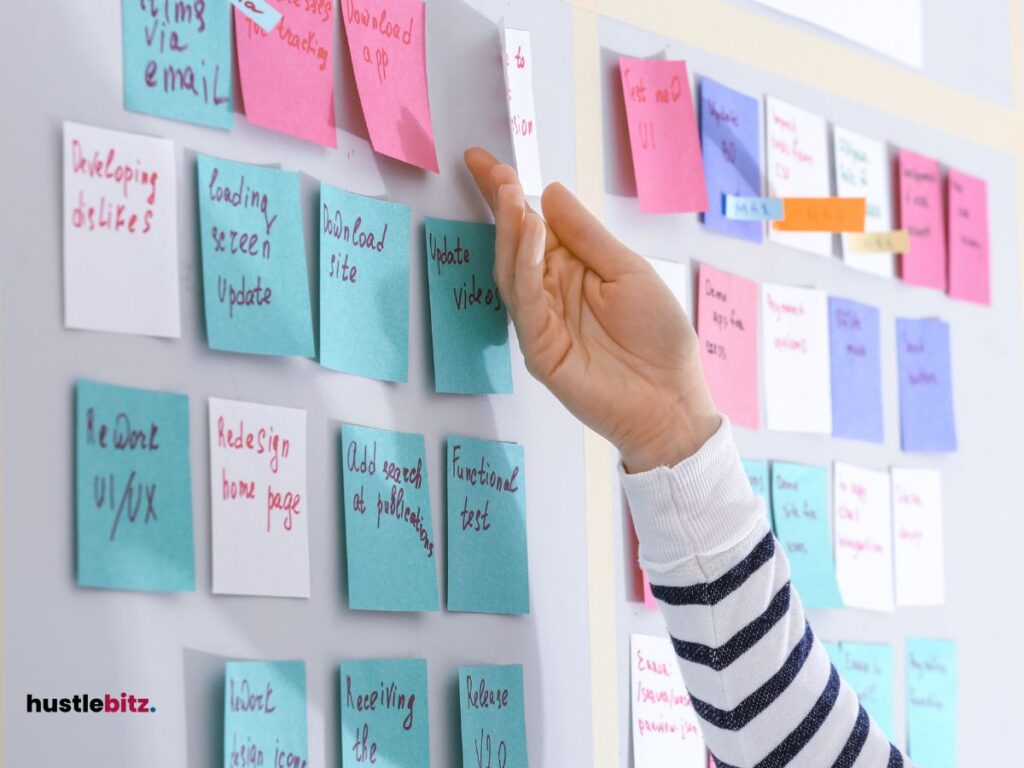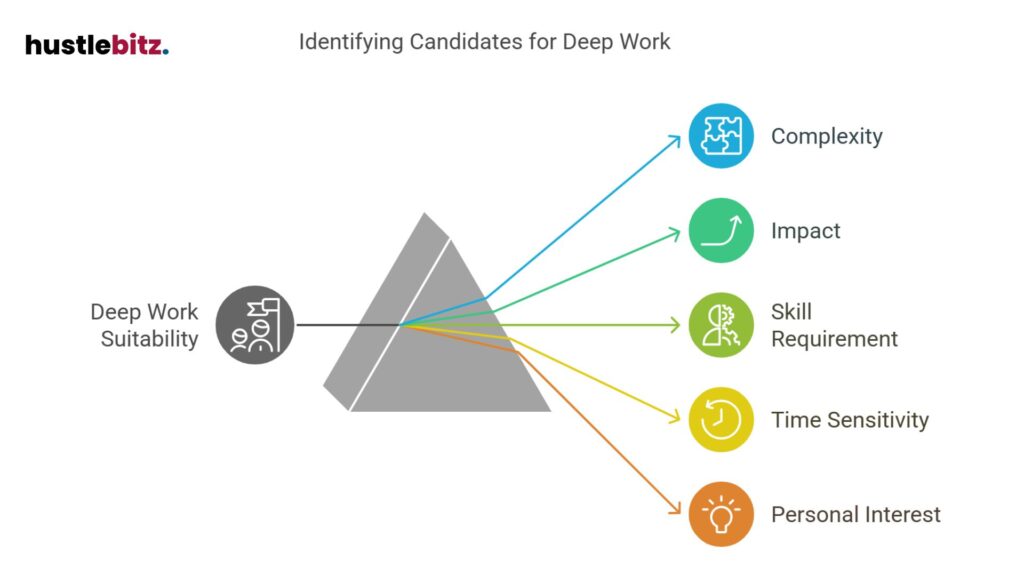Deep work is vital for unlocking uninterrupted productivity in today’s distraction-laden environment. It involves dedicated, focused effort on complex tasks, promoting high-quality results and fostering creativity. By embracing this practice, individuals can enhance their cognitive abilities and better manage their time and energy. To successfully implement deep work, one must create a distraction-free workspace, set specific routines, and utilize techniques like time blocking. Additionally, recognizing tasks that warrant deep focus can significantly improve overall performance. Understanding these concepts can cultivate a more productive mindset and lead to greater achievements in professional endeavors. Explore further to uncover effective strategies.
Key Takeaways
- Deep work enhances productivity by fostering focused, undistracted effort on complex tasks, leading to higher quality results.
- Creating a distraction-free environment, such as organizing your workspace and limiting notifications, is crucial for deep work success.
- Time blocking allows for effective time management, helping prioritize tasks and allocate dedicated periods for deep work.
- Incorporating techniques like the Pomodoro Technique and mindfulness practices can significantly improve concentration and prevent mental fatigue.
- Regular reflection on deep work sessions helps identify successful strategies and areas for improvement, ensuring long-term productivity gains.

Understanding Deep Work

Understanding deep work involves recognizing it as a state of focused, undistracted effort that allows individuals to produce high-quality results and achieve significant cognitive breakthroughs. This concept, popularized by Cal Newport, highlights the importance of cultivating the ability to focus in an increasingly distracted world. Deep work is characterized by distraction-free concentration, enabling individuals to tackle complex tasks with greater efficiency and depth.
The principles of deep work emphasize the need to eliminate distractions and create an environment conducive to intense focus. By prioritizing uninterrupted time for mentally demanding tasks, individuals can enhance their productivity and creativity. This focused approach not only fosters individual excellence but also contributes to the development of skills that are increasingly valuable in today’s knowledge economy.
In practice, implementing deep work involves establishing routines and rituals that minimize interruptions. This might include setting specific time blocks for focused work, utilizing tools to limit digital distractions, or creating a designated workspace that promotes concentration. By incorporating these strategies, individuals can significantly improve their ability to engage in deep work, ultimately leading to more innovative outcomes and a greater sense of fulfillment in their professional lives.
The Science Behind Focus
Focus operates as a cognitive process that significantly enhances an individual’s ability to engage in deep work, fostering greater productivity and creative insight.
The ability to focus intensely demands the activation of various cognitive capabilities, allowing individuals to immerse themselves fully in complex tasks without succumbing to distractions. In an age where interruptions are abundant, cultivating a distraction-free concentration is essential for achieving optimal performance.
Understanding the science behind focus reveals several key elements that contribute to improved productivity:
- Neuroplasticity: Engaging in deep work strengthens neural connections, improving mental agility.
- Cognitive Load Theory: Effective focus helps manage cognitive load, allowing for better retention and processing of information.
- Attention Restoration Theory: Immersing in focused tasks can rejuvenate cognitive resources, enhancing overall mental stamina.
- Mindfulness Practices: Incorporating mindfulness techniques improves the ability to concentrate and reduces susceptibility to distractions.
- Environmental Factors: A well-structured and minimalist workspace promotes distraction-free concentration, enabling deeper engagement.

Benefits of Deep Work

Deep work offers a multitude of advantages, including heightened productivity, enhanced creativity, and improved problem-solving abilities, all of which are essential for success in today’s fast-paced professional landscape.
One of the primary benefits of deep work is its capacity to significantly increase enhanced productivity. Engaging in focused work allows individuals to delve into complex tasks without the interruptions that often plague modern work environments. This uninterrupted approach fosters an atmosphere conducive to high-quality output.
Moreover, the ability to perform deep work cultivates a state of flow, wherein individuals become fully immersed in their tasks. This immersive experience not only boosts efficiency but also enhances creativity, as individuals are more likely to explore innovative ideas when free from distractions. The cognitive depth achieved during these sessions enables professionals to tackle intricate problems with greater clarity and insight.
Additionally, work without distraction promotes a stronger sense of accomplishment and fulfillment. As individuals complete challenging tasks, they build a sense of mastery and confidence in their skills. This sense of achievement further motivates them to engage in deep work regularly, creating a positive feedback loop that enhances overall performance.
Identifying Your Deep Work Tasks

Recognizing the specific tasks that require deep work is vital for maximizing productivity and harnessing the full benefits of focused engagement. Identifying deep work tasks is essential as it allows individuals to allocate their cognitive capabilities effectively during dedicated deep work periods. These tasks often demand uninterrupted focus and significant mental effort, making them distinct from routine tasks that can be accomplished amidst distractions.
To effectively identify your deep work tasks, consider the following criteria:
- Complexity: Tasks that involve problem-solving or creative thinking typically require deeper concentration.
- Impact: Activities that significantly contribute to your long-term goals or organizational objectives are prime candidates for deep work.
- Skill Requirement: Tasks that necessitate advanced skills or deep knowledge in a specific area are often best approached during focused periods.
- Time Sensitivity: Projects with tight deadlines or those that require timely completion benefit from uninterrupted focus.
- Personal Interest: Engaging in tasks that genuinely interest you can enhance motivation and facilitate deeper cognitive engagement.

Creating a Distraction-Free Environment
Establishing a distraction-free environment is crucial for enhancing productivity and allowing for sustained periods of concentrated work. In a world filled with constant interruptions, creating an atmosphere conducive to deep work is essential for maximizing cognitive function and achieving productive outcomes. By minimizing distractions, you can foster an environment that encourages concentration that push your cognitive limits.
To achieve a distraction-free workspace, consider implementing the following strategies:
| Strategy | Description | Benefits |
| Organize Your Space | Keep your workspace tidy and clutter-free. | Reduces visual distractions. |
| Limit Notifications | Turn off non-essential alerts on your devices. | Minimizes digital interruptions. |
| Set Boundaries | Communicate your need for uninterrupted time. | Encourages respect for your focus. |
| Use Noise-Canceling Tools | Employ headphones or white noise machines. | Blocks out ambient noise. |
| Establish Routine | Create a specific schedule dedicated to deep work. | Builds a habit of concentration. |
Time Blocking for Success

Effective time management complements a distraction-free environment and can significantly enhance productivity through the practice of time blocking. This strategy involves dividing your work hours into specific segments dedicated to deep work, allowing you to focus on high-priority tasks without interruption. Time blocking for success not only structures your day but also empowers your ability to work deeply.
To maximize the benefits of time blocking, consider the following key practices:
- Prioritize Tasks: Identify your most critical tasks and allocate time blocks accordingly.
- Set Clear Boundaries: Designate specific start and end times for each block to maintain focus and commitment.
- Schedule Breaks: Include short breaks between blocks to rejuvenate and sustain energy levels throughout the day.
- Limit Distractions: During each time block, minimize potential interruptions by silencing notifications and informing colleagues of your focused work periods.
- Review and Adjust: At the end of each week, assess your productivity and adjust your time blocks for better efficiency in achieving goals.
Techniques to Enhance Focus

Employing specific techniques can significantly enhance focus and facilitate deeper engagement with tasks, ultimately driving productivity.
One effective method is the establishment of a distraction-free environment. This setting minimizes interruptions, allowing individuals to enter a deep work session where they can leverage their cognitive capabilities to the fullest. By turning off notifications and creating a dedicated workspace, distractions are reduced, promoting sustained concentration.
Another technique to enhance focus is the Pomodoro Technique, which involves working in short, concentrated bursts followed by brief breaks. This approach not only helps maintain high levels of productivity during each deep work session but also prevents mental fatigue, allowing for prolonged attention to detail. Similarly, setting clear goals for each session can direct one’s efforts and provide a sense of accomplishment as tasks are completed.
Mindfulness practices, such as meditation, can also serve as powerful tools to enhance focus. They train the mind to maintain attention and resist distractions, fostering an environment conducive to deep work.
Additionally, incorporating regular physical activity into one’s routine is beneficial, as it has been shown to improve cognitive function and overall mental clarity.
Maintaining Long-Term Deep Work Habits

Sustaining long-term deep work habits requires consistent strategies that reinforce focus and productivity over time. Establishing a robust routine is essential, as it cultivates the habit of deep work, enabling you to engage in tasks that demand intense focus without succumbing to distractions. Success in maintaining these habits is often determined by the work environment and the practices you adopt to minimize interruptions.
To effectively foster long-term deep work habits, consider the following strategies:
- Designate a specific workspace: Create an environment free from distractions, allowing for a seamless transition into deep work sessions.
- Establish a routine: Consistently allocate specific times for deep work in your schedule to develop a reliable habit.
- Limit digital distractions: Use apps or tools that block distracting websites and notifications during your deep work periods.
- Incorporate breaks: Utilize techniques such as the Pomodoro Technique, which encourages short breaks to maintain energy levels and prevent burnout.
- Reflect on progress: Regularly evaluate your deep work sessions to identify what works and what needs adjustment, ensuring continuous improvement.
Final Thoughts
Deep work is a powerful tool for achieving uninterrupted productivity and excellence in a world filled with distractions. By creating a distraction-free environment, implementing time-blocking strategies, and embracing techniques like the Pomodoro Technique and mindfulness practices, you can enhance your ability to focus and produce high-quality work. Consistently applying these strategies not only fosters long-term productivity but also leads to greater fulfillment and success in your professional endeavors. The key is to prioritize deep work and make it a habitual part of your routine, allowing you to unlock your full potential and achieve your goals more effectively.




